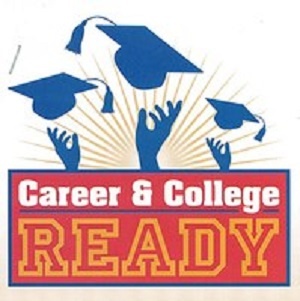Common Core, College Readiness, and Disadvantaged Students

A recent article in U.S. News and World Report about preparedness of college-bound students from disadvantaged backgrounds is the catalyst for this blog entry. It was written by Tiffany Miller, a first-generation college student. Miller refers to a report recently released by ACT and the Council for Opportunity in Education: The Condition of College and Career Readiness 2014: First-Generation Students.
Miller reminds us of the major challenges that first-generation and low-income students face when they enter college:
- First-generation students are much less prepared for college than their peers whose parents went to college – 80% of first-generation students who took the ACT said they planned to go to college, yet only 9% met all four ACT benchmarks predictive of college success.
- For low-income students, 84% aspire to obtain a bachelor’s or graduate degree yet only 11% met all four ACT college readiness benchmarks.
An earlier 2006 ACT Report, Reading Between the Lines: What the ACT Reveals About College Readiness in Reading, reported that, sadly, only 51% of all ACT-tested high school graduates met ACT’s College Readiness Benchmark for Reading. However, the number was much lower (33%) for students whose family yearly income was less than $30,000.
A related survey that came out in July leads to the conclusion that overall preparedness for college is getting worse. A recent set of surveys sponsored by Achieve asked over 700 college instructors if they thought entering college students were prepared for college. More than a decade ago, only 28% of college instructors stated that schools were doing an adequate job of readying students. But that count is down to 14% in 2015.
Miller suggests that the assumption that disadvantaged students will go to college underprepared doesn’t have to be the norm. She reminds us that all students, including disadvantaged students, who are exposed to the kind of rigorous curricula required in the K-12 Common Common Core standards are more likely to succeed in college. While it is too early to definitively state whether or not the Common Core is improving student achievement, Miller points out that early adopters of the Common Core are showing significant promise, including Massachusetts, Kentucky, and New York.
Controversy surrounds the adoption of the Common Core standards across the country, but from my perspective, the kind of rigorous curricula and emphasis on developing strong literacy skills that the Common Core embodies is the only way we can prepare students to succeed in college, especially students who are disadvantaged because they are first-generation college students or because they come from low-income families.
In my work at schools across the country, I see teachers working very hard to integrate more rigorous Common Core instruction as well as scaffolds to improve the literacy skills of struggling students. The impression I get is that these teachers recognize how important it is to get their students college and career ready, even if it is challenging to do so.
I entered college as a “disadvantaged” student — I was the first in my extended family to go to college, my family was not high-income, and my parents were the first to speak English in households that only spoke Italian. I succeeded in college and I owe a great deal of that success to my public school teachers who were committed to providing the kind of explicit literacy instruction and rigorous curricula now found in the Common Core.

 Joan Sedita is the founder of Keys to Literacy and author of the Keys to Literacy professional development programs. She is an experienced educator, nationally recognized speaker and teacher trainer. She has worked for over 35 years in the literacy education field and has presented to thousands of teachers and related professionals at schools, colleges, clinics, and professional conferences.
Joan Sedita is the founder of Keys to Literacy and author of the Keys to Literacy professional development programs. She is an experienced educator, nationally recognized speaker and teacher trainer. She has worked for over 35 years in the literacy education field and has presented to thousands of teachers and related professionals at schools, colleges, clinics, and professional conferences.
Sharing this with my colleagues in email and Facebook! Teaching at Ivy Tech Community College, we see this every day. Thanks!